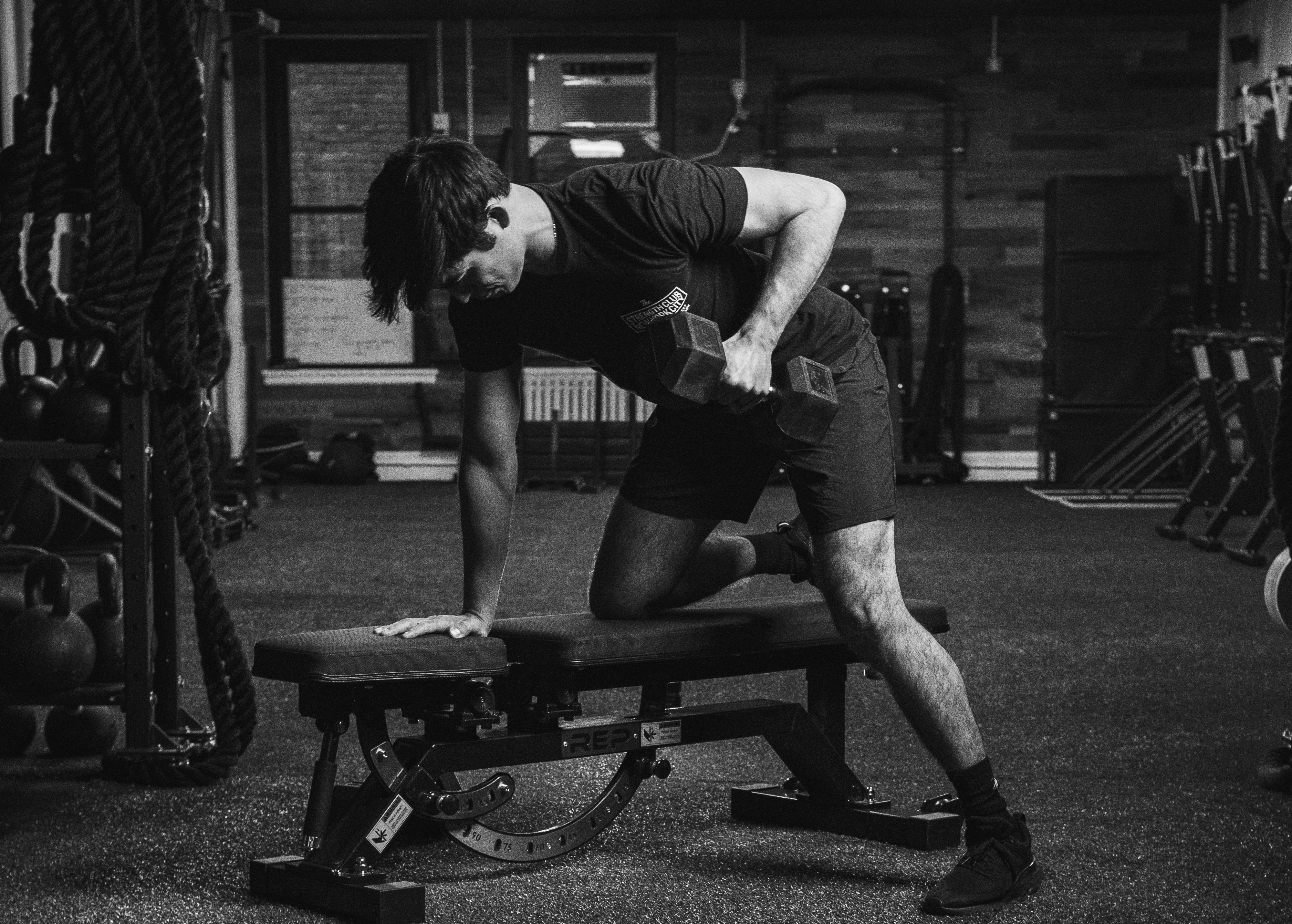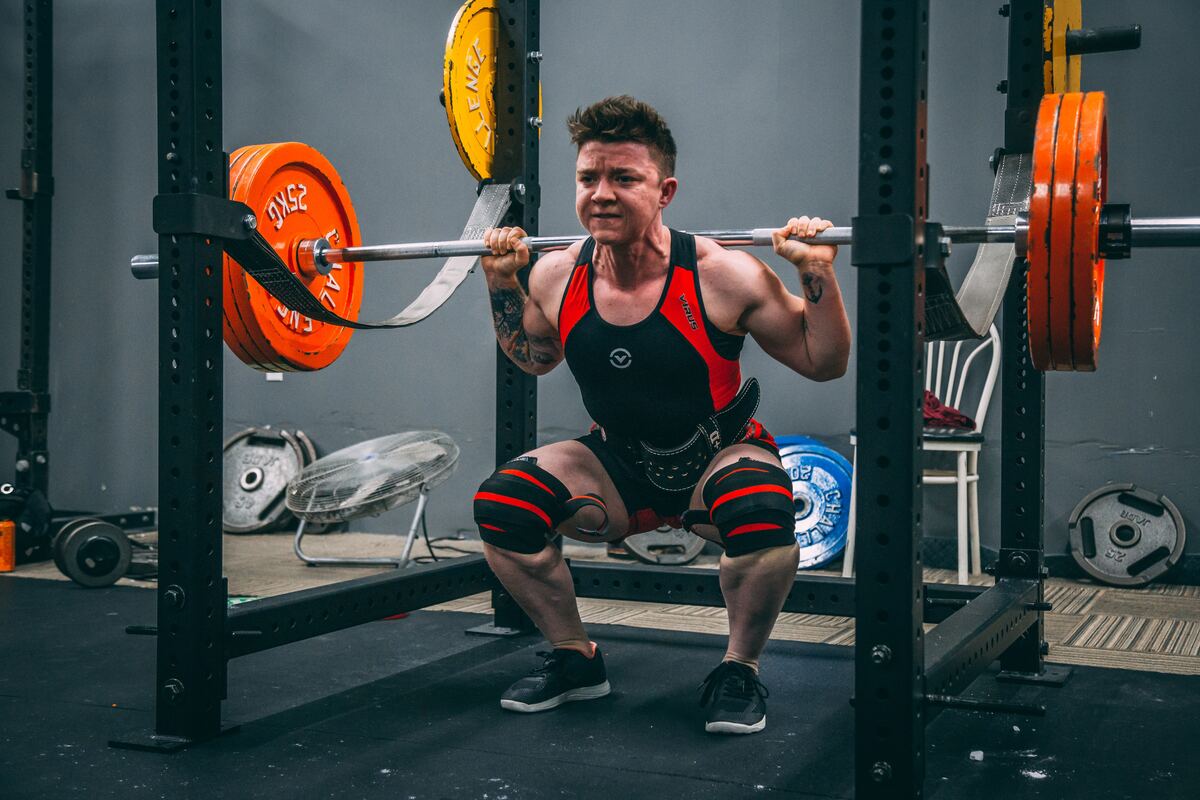
Your workout regimen may consist of strength training, high-intensity interval training, and cardio exercises. Many fitness goal lists include toning the overall physique, building muscle, and improving endurance. To address these needs across your various workouts, you’d have to determine whether it would be best to utilize more reps or more weight.
As you establish a foundation for your regimen and work toward your goals, you’ll find that certain executions will generate more desirable results, while improper techniques may not yield any results, or they may do unintended damage.
When you set your sights on outcomes like greater muscular endurance or greater muscle size, for example, you’ll be able to safely determine the effective reps and weight to achieve and maintain these goals. We’ll discuss the importance of weight and repetitions and the role that each of these factors plays in your fitness goals.
When is it better to do more reps?

To begin with, we must discuss the importance of repetitions. This is significant, as it determines how many times you can perform the exercise before you need to stop and take a break. Reps can help you measure your stamina up until muscle fatigue, so it would be better to do more reps when your fitness goal is to increase your muscular endurance.
When is it better to lift heavier weights?

Equally important is the volume of weight being lifted. Increasing your loads has a positive impact on growing your muscle size and strength. You’ll also find this is a pivotal point of progressive overloading, in which you engage in more challenging loads and workouts to allow your body to adapt to any stressful demands and prevent your muscle growth from plateauing.
Therefore, it would be better to lift heavier weights when you want to grow bigger muscles, improve your bone density, and upgrade your strength.
More reps vs. more weight for fitness goals

Reps vs. weight for building muscle
Muscle hypertrophy, which is the growth of muscle size, can be accomplished through lifting heavy weights. You can allow for some variation among your loads, with moderate loads helping to maximize muscle size and greater loads working towards increased strength. This can support muscular adaptations that serve as an asset to your total body fitness and strength.
To build muscle, you’ll want to use heavy weights and perform fewer reps. If you’re a workout rookie using dumbbells, you’ll start with light weights of about five to 10 pounds and do 12 to 15 reps as you establish proper form and gain strength. After this, lift moderate weights of about 15 to 25 pounds for 8 to 12 reps, and then finally upgrade to your heaviest weights of 30 pounds or more for 5 to 8 reps in a set. Of course, the appropriate weight depends on the exercise as well.
Reps vs. weight for losing weight
For weight-loss purposes, it may be better to use heavier weights and perform a moderate number of reps. Strength training workouts, like squats or deadlifts, may be effective for burning calories. In addition to the fat-burning element of weight loss, these workouts can support muscle mass building, so you’ll want to focus more on the weights and less on the reps.
For effective weight loss workouts, go for 8 to 12 reps while using your heaviest weights. Make sure you execute your workouts with the proper form to avoid injury or stress and opt for multi-joint exercises as well. When doing strength training for weight loss, you can eventually build up the frequency and duration of your exercises and add in some cardio workouts to enhance your weight loss outcomes.
Reps vs. weight for body recomposition
Body recomposition entails decreasing your body fat while increasing lean body mass. There are several mechanisms for doing this, such as attempting to reduce fat and increase lean body mass all at once, minimizing any fat gains while increasing body mass, or reducing your fat and maintaining lean muscle.
As you’re typically not excessively bulking up muscle but rather maintaining it, it may be better to do more repetitions with lighter weights. However, it’s important to note that reps and weight may fluctuate as you address fat and muscle in recomposition.
Reps vs. weight for explosiveness and athleticism
To maximize your athleticism, you’ll want to focus on low-weight, high reps. As previously mentioned, this will drive your endurance. In these instances, building muscle is not the focus; it is maintaining strong and lean muscles. This is important for staying fit and in shape to routinely participate in athletics.
The number of reps is vital because explosiveness in athletics is centered on how much maximum force can be exerted in a short period. This lays the foundation for your muscular capacity to carry out repeated exercises at certain intensities in a designated period.
Can doing the wrong rep range or weight hinder your goals?

To avoid stagnation in your fitness gains, you’ll want to employ some variety in your regimen. If your question is how many reps should I do, you may find the answer based on the way your ability to do the workouts progresses.
If you can do an exercise for 12 reps and gradually become able to do this same exercise for 15 reps, you’ve likely mastered good form and made strength gains so that you can move on to heavier weights. This lets you know that it’s time to go for a more challenging load to avoid a plateau. Try switching it up by working at different volumes regarding the repetitions, sets, and weight, using multiple forms of resistance, and opting for multiple types of workouts.
Not only can engaging in inappropriate reps and weights hinder your goals, but it can also lead to stress and injury. Proper form is key to maintaining your durability throughout the exercise. Additionally, if you find that you cannot sustain the correct form during your reps and sets, you’ll need to make adjustments, such as using lighter weights or reducing the number of reps.



